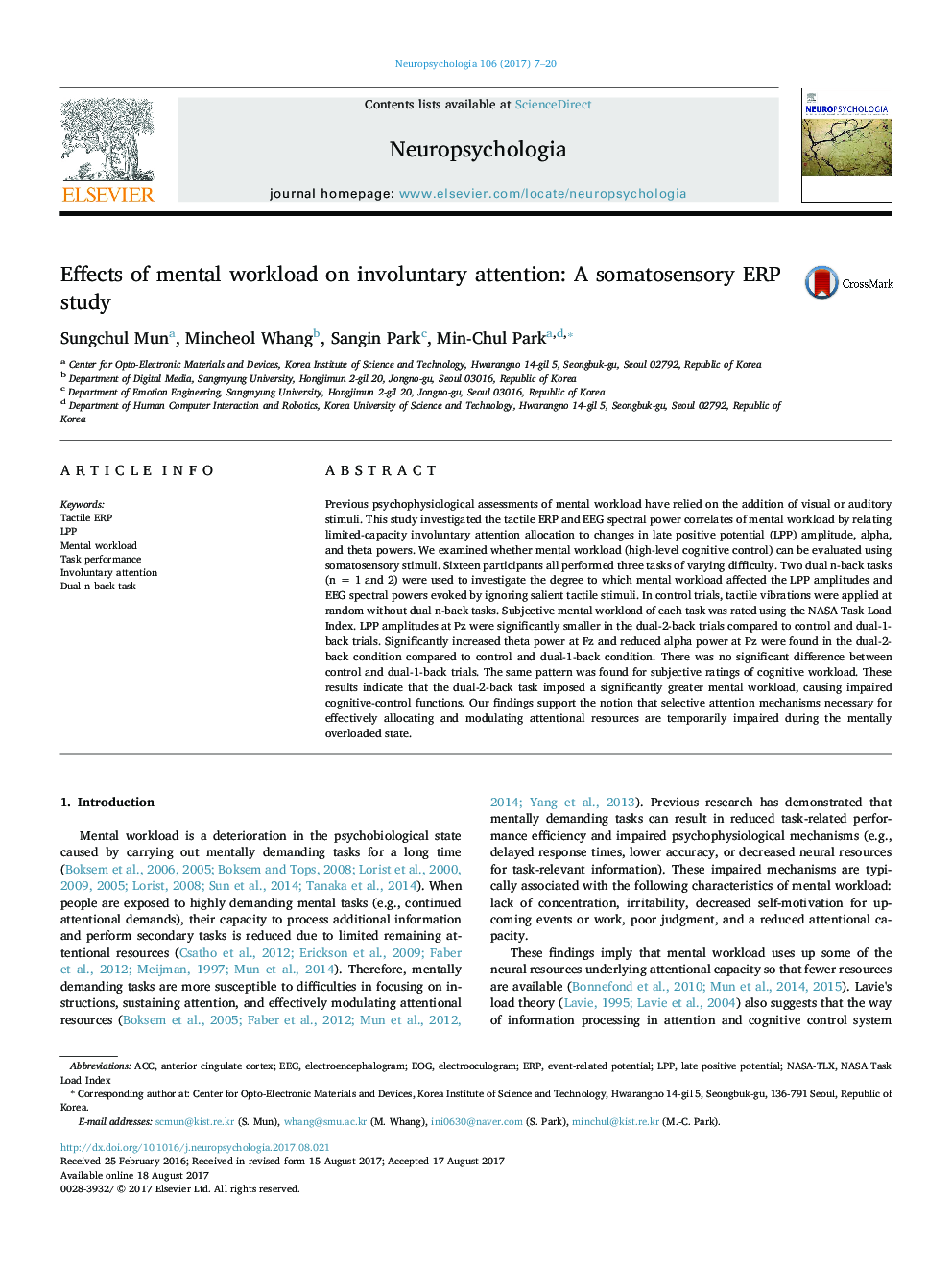| کد مقاله | کد نشریه | سال انتشار | مقاله انگلیسی | نسخه تمام متن |
|---|---|---|---|---|
| 5045026 | 1475549 | 2017 | 14 صفحه PDF | دانلود رایگان |

- Late positive potentials (LPP) have been suggested to indicate mental workload.
- Mental workload affected LPP amplitudes evoked by salient ignored tactile stimuli.
- LPP amplitudes were reduced under more cognitively demanding conditions.
- Mental workload resulted in increase in theta power at Fz.
- Reduced alpha activity at Pz was associated with increasing mental workload.
Previous psychophysiological assessments of mental workload have relied on the addition of visual or auditory stimuli. This study investigated the tactile ERP and EEG spectral power correlates of mental workload by relating limited-capacity involuntary attention allocation to changes in late positive potential (LPP) amplitude, alpha, and theta powers. We examined whether mental workload (high-level cognitive control) can be evaluated using somatosensory stimuli. Sixteen participants all performed three tasks of varying difficulty. Two dual n-back tasks (n = 1 and 2) were used to investigate the degree to which mental workload affected the LPP amplitudes and EEG spectral powers evoked by ignoring salient tactile stimuli. In control trials, tactile vibrations were applied at random without dual n-back tasks. Subjective mental workload of each task was rated using the NASA Task Load Index. LPP amplitudes at Pz were significantly smaller in the dual-2-back trials compared to control and dual-1-back trials. Significantly increased theta power at Fz and reduced alpha power at Pz were found in the dual-2-back condition compared to control and dual-1-back condition. There was no significant difference between control and dual-1-back trials. The same pattern was found for subjective ratings of cognitive workload. These results indicate that the dual-2-back task imposed a significantly greater mental workload, causing impaired cognitive-control functions. Our findings support the notion that selective attention mechanisms necessary for effectively allocating and modulating attentional resources are temporarily impaired during the mentally overloaded state.
Journal: Neuropsychologia - Volume 106, November 2017, Pages 7-20